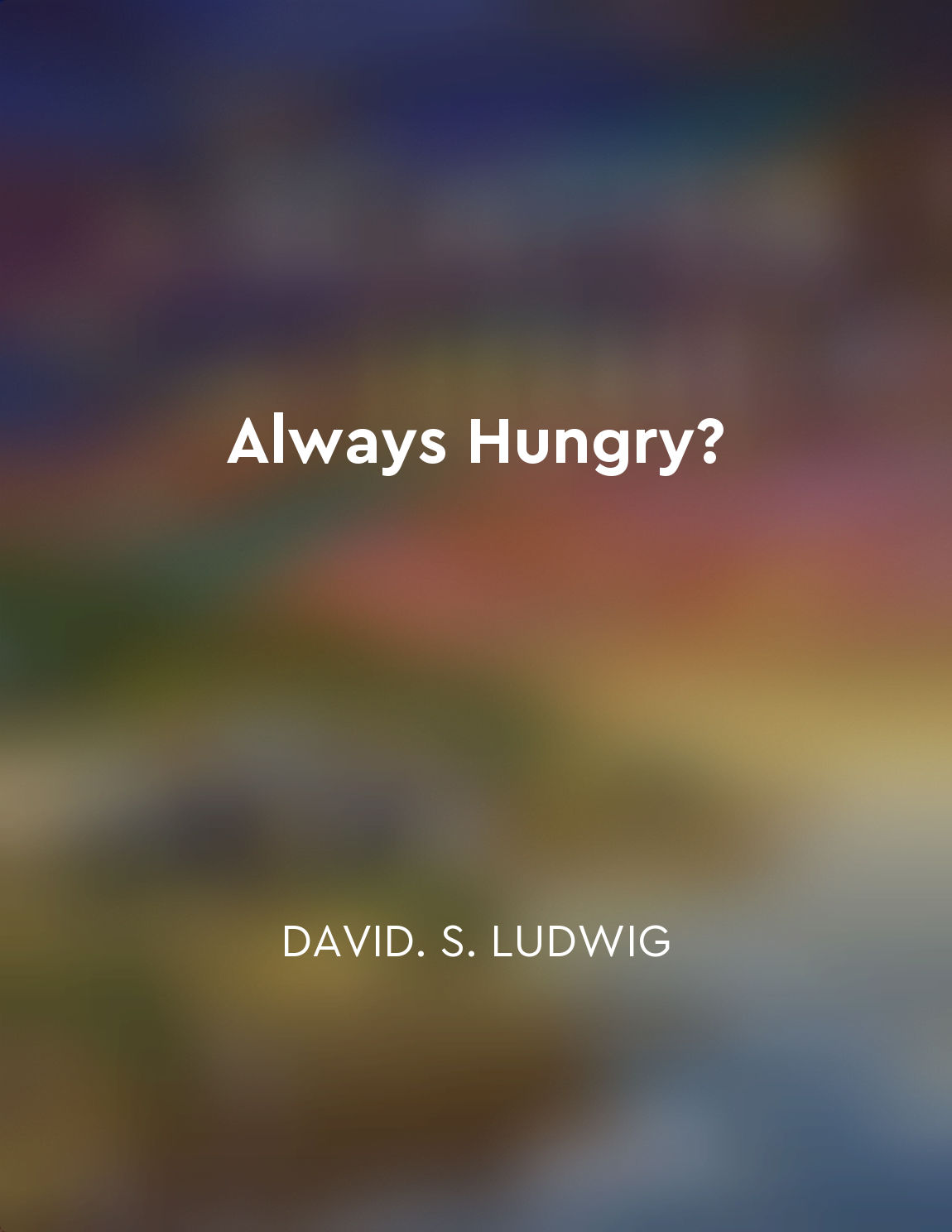Craving, reward, and memory systems drive overeating from "summary" of The End of Overeating by David A. Kessler
Our desire to overeat is not a matter of lack of willpower or discipline. It is driven by a complex interplay of biological and psychological factors that make it difficult for us to resist the temptation of highly palatable foods. The brain's craving, reward, and memory systems play a crucial role in this process, reinforcing our behavior and making us more likely to overeat. When we encounter foods that are high in fat, sugar, and salt, our brain's reward system is activated, releasing feel-good chemicals like dopamine that make us feel pleasure and satisfaction. This creates a strong association between the taste of these foods and the pleasurable sensations they produce, driving us to seek them out again and again. Over time, this repeated exposure to highly rewarding foods can lead to changes in our brain's memory system, making us more likely to crave and consume these foods in the future. Our brain forms powerful associations between certain cues, such as the sight or smell of food, and the pleasurable experience of eating it, triggering cravings and making it hard for us to resist temptation. These cravings can be further reinforced by external cues in our environment, such as the availability of highly palatable foods or the sight of food advertisements, which can trigger memories of past eating experiences and make us more likely to overeat. The combination of these biological and psychological factors creates a vicious cycle of craving, reward, and memory that drives us to consume more calories than we need, leading to weight gain and other health problems. To break this cycle, we need to become more aware of the powerful influence that our brain's craving, reward, and memory systems have on our eating behavior. By understanding how these systems work, we can begin to make more informed choices about the foods we eat and develop healthier eating habits that are not driven by cravings or external cues. It is not a simple matter of willpower, but rather a complex interplay of biological and psychological factors that we must learn to navigate in order to overcome overeating.Similar Posts

Healthy fats are an important part of a balanced diet for weight loss
Healthy fats play a crucial role in a balanced diet, especially when it comes to weight loss. Many people believe that fats sho...
Rewards help reinforce new habits
Rewards play a crucial role in the process of establishing new habits. When we receive a reward for performing a particular beh...

The Standard American Diet is harmful
The Standard American Diet (SAD) is the typical way of eating for many individuals in the United States, characterized by a hig...

Reflect on your progress regularly to stay on track with your goals
Regularly reflecting on your progress is crucial if you want to stay on track with your goals. It allows you to see how far you...
Artificial flavors cannot replicate the complexity of real flavors
Artificial flavors are a marvel of modern food science. They allow us to experience the taste of strawberries, raspberries, or ...
Make small, sustainable changes to your diet over time for longlasting results
To achieve long-lasting results in improving your diet, it is essential to make small, sustainable changes over time. This appr...
Honor your body's signals for hunger and fullness
When it comes to eating mindfully, it is essential to pay attention to your body's signals for hunger and fullness. These signa...

Food should nourish and fuel the body
The most important function of food is to provide the essential nutrients our bodies need to thrive. This means that the primar...
